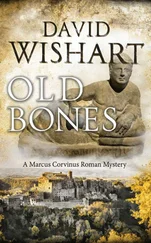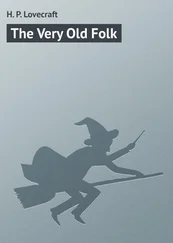But as Molly moved toward Sarah to snatch away the ruler Tommy suddenly rolled onto his back and with both feet kicked Sarah in the stomach as she was raising the ruler yet again, and Sarah flew backward across the room, her back colliding with Tommy’s three-drawer dresser, knocking his clown lamp to the floor and throwing the room into darkness. And Sarah sat suddenly on the floor, breathless, her glasses gone, her expression not pained as much as incredulous that such a thing could happen to her.
So began Sarah’s awareness of her mortality. In her rage, Sarah damaged Tommy’s spine so severely that he could not walk, could not stand or lie straight, could not bend over, could only rest and sleep sitting on cushions. Dr. Lynch, the family physician for thirty years, prescribed pain pills, a wheelchair, and X-rays, and accepted without question the explanation that Tommy had been attacked on the street by wild kids who hit him with sticks. Tommy would not eat or drink, would accept nothing from Sarah, and so Molly assumed control of his life and convinced him to take some bread pudding and tea. She put whiskey in the tea to soothe this grown-up child who never drank whiskey, or even beer or wine, in a house where it went without saying that a drop of the creature improved every living thing, including dogs and fish.
Tommy calmed down and Molly busied herself so totally with him that she could, for hours at a time, forget how dreadfully hostile she was to this house, this family, especially to the absurd and brutal Sarah, who could not only do such a thing but who could stand for the doing for decades, Sarah who felt no remorse, only mortal pangs of ingratitude that she should be isolated by her family after giving her life over to its care and feeding, its salvation from damnation.
Chick was the first to isolate her. When he learned what she had done to Tommy he immediately picked up the telephone, called Evelyn, proposed to her and was accepted, told her he would give two weeks’ notice at the Times-Union and take whatever severance pay he had coming, then they would go to Miami as she wanted, she could work at the deli, he’d get a job somewhere, and they’d start a new life and never look back.
He said all this in earshot of Sarah, who was sitting in front of the television watching “Death Valley Days,” a western series to which she gave loyalty because it advertised 20 Mule Team Borax scouring powder, which Sarah used for cleaning, as had her mother before her. Sarah said nothing to Chick when he hung up, did not acknowledge that he was in the room. He walked in front of the television and said to her, “Sarah, you and your mad ways are out of my life. And Tommy’s life too.”
The latter threat was not to be carried out. Chick had concocted an instant pipe dream that he would take Tommy to Florida with him, care for him, let him grow old in the sun. But Tommy could not move, and would not; said he didn’t want to leave Colonie Street in such nice weather. Tommy, in a week, seemed to have forgotten the beating Sarah gave him. He did not really remember why he couldn’t walk right, yet he shunned Sarah even so, leaving the room when she entered. He did not talk to her about the beating, or about Letitia Buckley, and when Molly tested him and asked what happened to his back he thought a while and said some bad boys hit him with sticks down on Pearl Street.
After six weeks in the wheelchair and sleeping on the sofa in the back parlor to avoid going up and down stairs, Tommy began to improve. Despite this, Molly felt herself sliding back into the melancholy mood that had enveloped her after Walter’s death. She barely talked to Sarah, who had withdrawn into her cocoon of injured merit, and nurtured herself with silence and television. Also, with Chick being gone, probably forever, the house never seemed emptier to Molly.
She took short walks in the neighborhood, visited with neighbors, Martha McCall across the street, who was supervising the movers who would take her and Patsy and their household of forty-four years out of the neighborhood and up to a new house on Whitehall Road, and Libby Dolan, who said she was selling her house to a Negro woman. Would Molly know anybody on the block in another year?
Molly also bumped into Letty Buckley, to whom she had apologized coming out of church the first Sunday after Tommy’s cane trick, and found Letty sweet, even forgiving, knowing how simple Tommy was, a bit abashed it was a simpleton who had done that to her, and even worried for him. Will you have to put him away? No, never, said Molly. And she came home in a fog of emptiness.
Coming into the house made it worse. Talk to Tommy? Talk to Sarah? Talk to the walls? She called her niece, Peg Quinn, just to hear a family voice, and Peg was strong, as always. Molly updated her, leaving out the cause of Tommy’s injury, and Peg immediately offered to come down and visit, or take Molly to supper Downtown, or a movie maybe? But no, that wouldn’t solve anything. And then, after a half-hour of speculating on what would become of Chick in Florida, and analyzing Sarah’s sullen isolation, Peg said, “Why don’t you go up to Saratoga and spend some time at the hotel? The weather’s beautiful, and Orson’s there, isn’t he?”
“He is,” said Molly.
“Then call him and tell him to get a room ready for you, and one for Tommy, and for Sarah if she wants to go. Get a change of scenery. Do it, Molly, do it.”
Do it. Molly understood the advice. Do it, Molly, Walter told her, Chick told her, Peter told her. And did she do it? In her way. But she didn’t weigh much. Ha-ha.
“Maybe I will,” Molly said. The hotel, the lake, Orson. “But Tommy needs his wheelchair. I couldn’t handle it alone.”
“I’ll send Billy down to give you a hand getting him and the chair into the car,” Peg said. “And Orson can help you at the other end.”
Molly called Austin McCarroll at the Texaco station and told him to come and take her car down off blocks and make it drivable. Walter had given her the car, a 1937 Dodge, and taught her to drive it. In seventeen years Molly had driven less than four thousand miles, drove it back and forth to Saratoga, took Sarah and Tommy for drives in the evening to get ice-cream cones, went riding Sundays after the war. This year she didn’t even bother to take it off blocks when the good spring weather came. No place to go anymore.
But now Molly could see herself again at the wheel, driving up Route 9; going up the hill into the Grand View driveway, a thrilling prospect, something she hadn’t done as a vacationer in years. Even though so much time had passed, the Grand View had never been out of her mind for long, and whenever she did find herself turning into its driveway she knew that it would be like going home again, going home to love.
The Grand View Lake House: An Old Brochure
Situated on the eastern shore of Saratoga Lake, fifteen minute ride from railroad station, our car and porter meet your train; the hotel and cottages offer beautiful vista, eighty rods from and no feet above lakeshore, avoiding excessive dampness at night, free from miasma and malaria; convalescents accommodated, consumptives not entertained. Rolling lawns, shade trees, canoeing, boating, fishing, bathing, tennis court, croquet, clock golf, eighteen-hole golf course nearby, bird sanctuary in woods, small game and bird hunting in season, tents available for camping in nearby woods, thousands of flowers, garage on premises, motor parties welcome. Dining room screened, strictly home cooking, all eggs, milk, cream, poultry, and vegetables from our own farm. Wide, 200-foot long veranda, two fireplaces, casino for dancing, piano, phonograph, talking pictures every Sunday night, shower baths, inside toilets, long distance telephone connection, cars carry our guests to nearby Catholic and other churches. Proprietors Patrick and Nora Shugrue, William Shugrue full partner. Hotel open from June 1st to October, 105 rooms, three cottages, special rate by the week, write for terms.
Читать дальше












